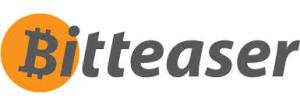While the label control ove r the paid tier is a play to rights-holders, perhaps more crucially, the user-generated remixes help preserve SoundCloud’s status as a music community. “The audience that is buying electronic albums and festival tickets is hanging out on SoundCloud,” says James Collinson, head of Ninja Tune North America. “It’s an artist tool and an artist community.”
r the paid tier is a play to rights-holders, perhaps more crucially, the user-generated remixes help preserve SoundCloud’s status as a music community. “The audience that is buying electronic albums and festival tickets is hanging out on SoundCloud,” says James Collinson, head of Ninja Tune North America. “It’s an artist tool and an artist community.”
Still, the question remains: “Does the world need another streaming service?” as Russ Crupnick, managing partner of the MusicWatch consultancy, puts it. “It’s going to be hard.”
And despite SoundCloud’s enviable reach, how much of its generally young and tech-savvy audience will pay for music they mostly have been enjoying for free? “Looking at conversion rates, it’s likely they’ll end up with low single digits,” says Mark Mulligan, an analyst at Midia Research, based on comparisons with other free services. But even a 5 percent conversion rate from SoundCloud’s 175 million users — 8.7 million — would make it a serious player.
Source: Billboard




 Spotify has agreed to do a better job at allowing music publishers and songwriters to claim and receive royalties from the streaming service. However there’s a caveat: to strike the settlement deal with Spotify, copyright holders cannot make an infringement claim against the company.
Spotify has agreed to do a better job at allowing music publishers and songwriters to claim and receive royalties from the streaming service. However there’s a caveat: to strike the settlement deal with Spotify, copyright holders cannot make an infringement claim against the company.
 n technology opens up the possibility for a provider to offer an immutable registry of transactions, held on a decentralized network of computers.
n technology opens up the possibility for a provider to offer an immutable registry of transactions, held on a decentralized network of computers.

 big business and as increasing activity moves online, so too do the marketing dollars. While 2015 saw an estimated $170.5 billion (bn) spent on online advertising globally, this figure is projected to mushroom almost 50% by 2018 to $252bn. But can anyone apart from the big guys snap up a slice of this lucrative business and leverage the Internet of Things to achieve it?
big business and as increasing activity moves online, so too do the marketing dollars. While 2015 saw an estimated $170.5 billion (bn) spent on online advertising globally, this figure is projected to mushroom almost 50% by 2018 to $252bn. But can anyone apart from the big guys snap up a slice of this lucrative business and leverage the Internet of Things to achieve it?